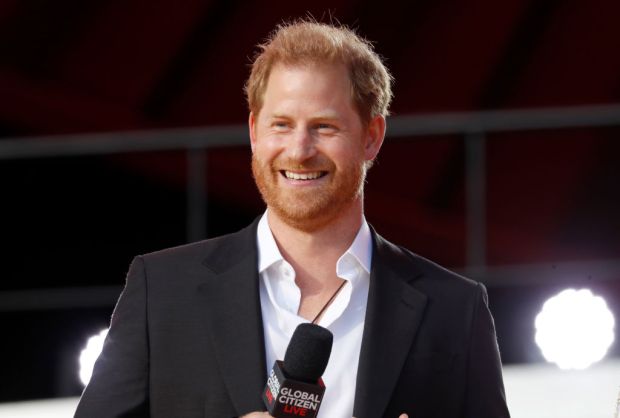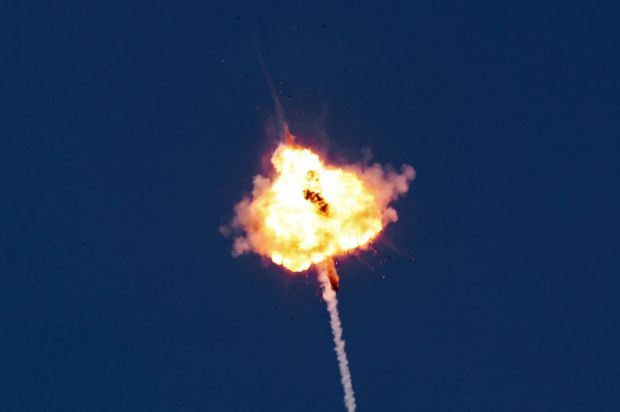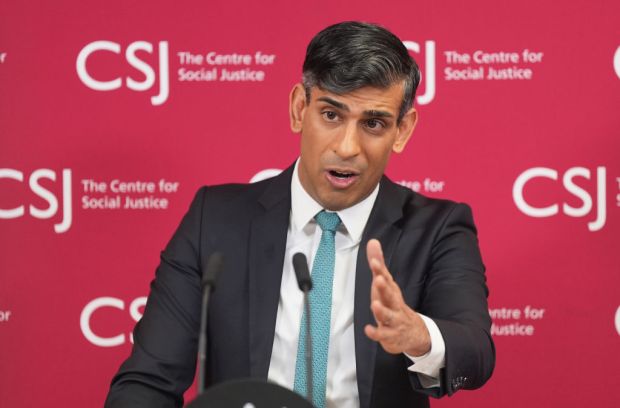The past week has seen the war in Ukraine, which has been simmering for the last seven years, once more come to the boil. According to Kiev, Russia has massed as many as 85,000 troops near its border, while Moscow has actively talked-up the possibility of full-scale war and warnedthat it ‘would mean the beginning of Ukraine’s end’.
Is such a war likely? You can forgive Kiev for worrying so — Vladimir Putin is already getting his excuses ready. The Kremlin claims to have an obligation to protect the residents of the Donbass if tensions continue to rise (just like it claimed to have an obligation to the residents of Crimea, in 2014, prior to annexing the peninsula). Meanwhile Kremlin-backed media organisations are questioning the role that western actors have played in the renewed tensions.
Over Ukraine, Russia is once again engaged in political warfare — an increasingly important form of conflict identified in the recent integrated review into defence and foreign policy, published by the government last month. Russia and other revisionist powers like China are trying to achieve their objectives in the murky zone between war and peace. It is for this reason that Russia is ‘framing’ its actions towards Ukraine as being defensive, even though it is the Kremlin that is the aggressor.
Yet political warfare is nothing new, authoritarian powers have been on the offensive for the past decade: whether it’s cyber attacks, so-called ‘wetwork’ in cities like Salisbury or Berlin, or the use of irregular forces — Russia’s ‘little green men’ in Crimea and China’s ‘little white boats’ in the South China Sea. These sorts of grey zone operations are a new front threatening democracies the world over, Britain included.
Successive British governments have forgotten that the international order is not an objective reality but instead a political arrangement, one that London has played a central role in crafting and upholding. Russia and other authoritarian powers are trying to deconstruct the ideas and concepts that underpin this order, both within their own regions and at the global level, and replace them with their own.
Over at least the last decade, the Kremlin has taken a confrontational approach to its relations with the UK, attempting to position Britain in ways that ultimately benefit Moscow and disadvantage London and other Euro-Atlantic capitals.
Earlier this year, Andrei Kelin, Russia’s Ambassador to the UK, lamented that his country was ‘being portrayed as an enemy’, suggesting that it was motivated by irrational Russophobia. Sergey Lavrov, Russia’s long-serving foreign minister, has accused the UK of ‘double standards’ in its foreign policy and suggestedthat London spreads ‘blatant lies and blatant disinformation.’ In 2013, a Russian spokesperson reportedlydescribed the UK as ‘a small island no-one pays attention to’.
The Kremlin targets Britain for a number of reasons. These include: the central role the UK plays in the defence of Europe, specifically in regions Russia thinks it has a right to control, such as the Baltic; the UK’s brokering of an international response to the nerve agent attack on the Skripals in 2018; Britain’s role in EU sanctions on Russia since 2014; and, London’s efforts to hold Russia to account for the murder of Alexander Litvinenko in 2006.
The response of Britain’s political elite to Russia’s discursive statecraft has been mixed. David Cameron responded to the description of the UK as ‘a small island no-one pays attention to’ with a clear defence of the country. In 2018, Gavin Williamson, then defence secretary, used less sophisticated language, saying‘Russia should go away; it should shut up’. Theresa May’s speech at the 2017 Lord Mayor’s banquet was more direct, warning: ‘I have a very simple message for Russia. We know what you are doing. And you will not succeed.’
If the Kremlin’s plans are to be impaired, London needs to close off British institutions and media to authoritarian advances. But the UK also needs to adopt a more proactive stance. Have Russia’s geopolitical discourses been analysed by the government? And what prevents the UK from offensively and strategically ‘counter-positioning’ Russia — for example, by referring to the country as a ‘kleptocracy’?
Language and strategy matter – whether in Ukraine or in relation to Britain’s global role. It is critical that Britain’s political leaders recognise that, respond accordingly, and avoid falling for the ideas and concepts of our rivals.
Andrew Foxall’s paper ‘How Russia ‘positions’ the United Kingdom’, can be read on the Council on Geostrategy’s website.<//>
Got something to add? Join the discussion and comment below.
Get 10 issues for just $10
Subscribe to The Spectator Australia today for the next 10 magazine issues, plus full online access, for just $10.



















Comments
Don't miss out
Join the conversation with other Spectator Australia readers. Subscribe to leave a comment.
SUBSCRIBEAlready a subscriber? Log in